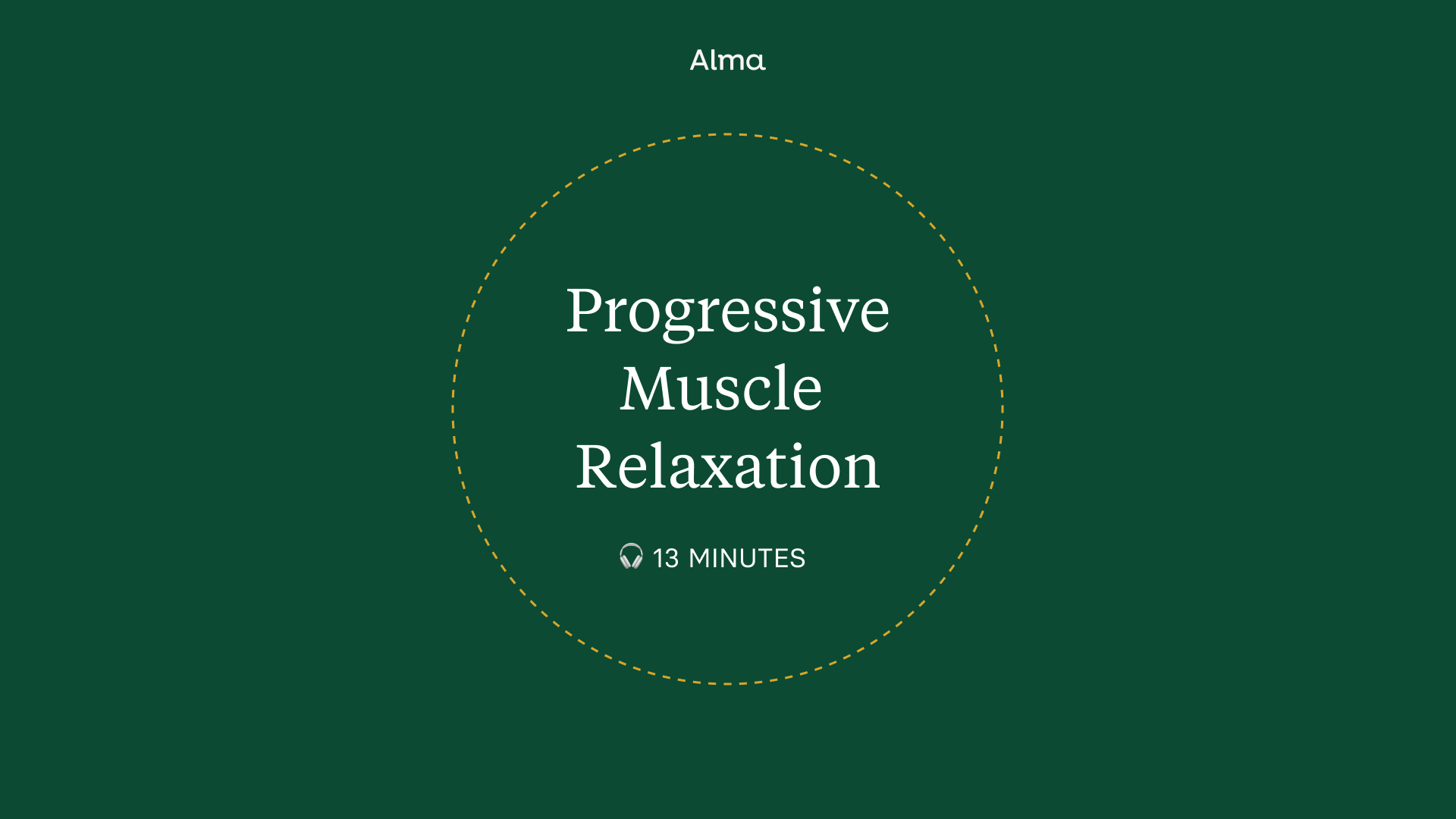
Using EMDR Therapy for Insomnia and Restful Sleep
EMDR therapy, best known for treating trauma, is also emerging as a powerful tool to improve sleep by calming the mind and reducing stress-driven insomnia.
“The worst thing in the world,” according to author F. Scott Fitzgerald, is “to try to sleep and not to.” If you’re nodding your head in agreement and frustrated by months or even years of chronic sleep issues, you’re in the right place.
While most adults need 7–9 hours of sleep per night to fully function, a recent Gallup poll suggests only about 52% of Americans meet that mark (with around 20% averaging a seriously deficient 5 hours or less per night).
Running on too little sleep? You may be struggling to concentrate, fumbling big and small tasks, and getting irritated at every turn.
Sleep deficiency has also been linked to a litany of health problems, including:
- High blood pressure
- Obesity
- Depression
- Increased risk of injury
We’re guessing that you know all of this already—which is why you’re here and hoping that EMDR can help.
As a therapist who specializes in EMDR, I’ve used this evidence-based treatment to help clients address persistent sleep disturbances such as insomnia and nightmares. Let’s dive into how and why it can be so effective.
Can EMDR Improve the Quality of Sleep?
Eye Movement Desensitization Reprocessing (EMDR) is a research-backed and effective form of psychotherapy that’s proven to help people recover from trauma and other symptoms.
In several studies, EMDR therapy has also been linked to increasing the density of REM sleep which contributes to deeper and more restorative sleep.
To understand how EMDR improves sleep, it’s important to first understand what can make sleep worse. There’s a long list of culprits that range from physical discomfort and effects of medication, to chronic stress and anxiety, to what’s happening in your world and the world at large.
The Many Possible Causes of Sleep Problems
Sleep disturbances refer to any kind of ongoing difficulty in falling asleep or staying asleep, including nightmares, chronic insomnia, restless sleep, and other concerns. Since many things contribute to sleep disturbances, it’s important to identify individual causes.
Physical causes:
- Hormonal issues
- How or when you exercise
- Genetic factors
- Chronotype (whether you’re an early bird or a night owl)
- Medical conditions (such as sleep apnea or restless leg syndrome)
- Medications
- Obesity
- Physical pain, tension, injuries, or discomfort
- Substance use (such as caffeine, alcohol, or stimulants)
Environmental causes
- Co-sleeping (other people or pets)
- Diet choices (and the timing of meals)
- Jetlag
- Light
- Noise
- Poor sleep hygiene (irregular sleep schedule, napping)
- Relationships
- Safety
- Scary content (books, online, news, shows, or movies)
- Screens
- Stress
- Temperature
Psychological causes
- ADHD
- Anxiety
- Bipolar Disorder
- Depression
- Dysfunctional beliefs about sleep
- Grief
- OCD
- Phobias
- Stress
- PTSD
Sleep disorders
- Insomnia
- Restless leg syndrome
- Sleep apnea
The Link Between Insomnia & Nightmares
Insomnia is defined as difficulty falling or staying asleep. Specific causes of insomnia include stress, anxiety, depression, noise, temperature, comfort, substances, jet lag, and work shifts. Chronic insomnia, lasting a month or more, may also stem from underlying medical conditions, mental health disorders, lifestyle habits, substances, or medications.
Insomnia is a common cause of nightmares. Other causes of nightmares include accidents, anxiety, injury, illness, medications, phobias, substance use, sleep disorders, scary media, traumas, and other factors.
Nightmares happen at any age and stage. “Night terrors,” on the other hand, are more common in children ages 3–12 (about 2% of kids have night terrors), and may be linked to an immature nervous system.
Just like insomnia can contribute to nightmares, it can go both ways. Nightmares may be linked to dysregulation of the parasympathetic nervous system—meaning an elevated heart rate, breathing, and higher cortisol levels—that makes it hard to sleep well or fall back asleep after waking up.
How Does EMDR Help with Insomnia, Nightmares, and More?
Poor sleep, nightmares, and insomnia often share a cycle of anxiety and arousal:
- You wake up (whether from a brief bathroom trip, noise, nightmare, etc.)
- An automatic thought arises that’s anxiety-producing (e.g. Oh no, now I won’t be able to fall back asleep.)
- These anxious thoughts and feelings trigger adrenaline and cortisol, which make it hard to return to sleep.
- The combination of adrenaline, cortisol, and anxiety can further condition the body to associate being in bed with stress and wakefulness.
EMDR can reduce and soften the impact of symptoms that disrupt sleep (such as physical tension or hyper-vigilance). This can allow you to “off-ramp” from the cycle of anxiety and arousal and learn to fully relax and fall asleep.
There are two main ways that EMDR can help with sleep:
By processing underlying trauma that’s keeping you awake
For many people, insomnia and nightmares originate from a very stressful event(s). This can mean standalone “big T” Trauma (a one-time incident, disaster, or sudden loss) or an ongoing series of complex events or “little t” trauma (an unsafe environment or caregiver, microaggressions, neglect, phobias etc.).
Long after the traumatic events are over, effects may linger, causing dysregulation. This can make it difficult to fall asleep or stay asleep.
Whether a sleep disturbance began with a “big T” or “little t” trauma, an EMDR therapist will work with a client to “target” the original incident or cause (past), process current triggers and symptoms (present) and gain confidence and ease in handling upcoming situations (future). In time, these previous memories or triggers may no longer carry the same intensity nor impact they once did.
By examining underlying associations that keep you awake
People sometimes have a “positive association” with wakefulness. For example, a young person may have learned to stay up late to read a book, play a game, scroll, text, or nibble when the home is finally quiet. With repeated behavior, this wakefulness can become a compulsion and contribute to other addictions (such as alcohol, caffeine, and other substances or behaviors).
It perhaps goes without saying that, in addition to other “compulsions,” the prominence of screens plays a big role in positive associations with wakefulness. Stimulating content, blue lights and dopamine before bed can make it difficult to wind down.
Through EMDR therapy, a person may begin to reexamine their relationship with sleep, compulsions and addictions, so they can enjoy even more “positive” feelings while also enjoying a good night’s rest and functioning. A client may reprocess any fixed sensations or beliefs (such as “only when it is dark, I can be at peace” or “only when I drink, I can relax”). After a time, new, more flexible beliefs and feelings can be reinforced (such as “I have many choices to relax and be at peace”).
EMDR therapy works to address the past, present, and future, helping people gain more peace and confidence to fall asleep, stay asleep, and wake up feeling rested. This work along with lifestyle choices, beliefs, and support) can offer significant relief.
In many cases, EMDR can help fully resolve sleep disturbances.
10 Tips for Better Sleep from an EMDR Therapist
In addition to the reprocessing work specific to EMDR, clients may benefit from finding realistic ways to practice better sleep hygiene.
Exploring things like movement, nutrition, pain management, relationships, relaxation strategies, substance use, and sleep routines can all build confidence toward a long-term, positive relationship with sleep.
Basic strategies for better sleep hygiene that I often recommend:
- Keep your bedtime the same.
- Keep your wake-up time the same (avoid sleeping in, even if you got poor sleep).
- Don’t nap (especially if you had trouble falling asleep the night before).
- Get exercise and get outdoors in the first 30 mins (avoid night workouts).
- Get electrolytes (before caffeine), protein, and fiber in the first 30 mins.
- At night, maintain a quiet, cool, and comfy bedroom.
- Avoid: big meals before sleep, caffeine, stimulants, nicotine, and scary content.
- Practice winding down two hours before bedtime, limiting screen time.
- If you’re not sleeping, get up after 20 mins, change rooms, and do something restful (read, draw, even lay on the floor). Try again after you get sleepy. Repeat as often as needed.
- If you have repeat nightmares or ruminating thoughts, write an “alternative ending.” Then read it several times before going to sleep. For example, the thought “I’ll never sleep” or “I’m not okay” could be reframed as “Whether or not I sleep, I am taking good care of myself by resting.” A nightmare’s “alternative ending” could be something like, “...and then we chase the dragon away with drums, my friends surround me, we dance around a campfire.” If you wake up during the night, repeat “What would I like to happen next?” Then practice visualizing it. Log what changes over two weeks!
(Note: These tips are not a substitute for personalized advice from a qualified provider who knows your health history, symptoms, challenges, and goals.)
Take action:
Find an EMDR therapist who can help with insomnia & nightmares
Any sleep disturbance that impacts your overall health, mood, or performance may be worth exploring with a qualified therapist.
Alma's nationwide network includes over 21,000 licensed therapists, many of whom offer EMDR for relief from nightmares, insomnia, and generally better sleep
Find the right fit for you by filtering our therapist directory for insurance, therapy style, language, identity, and more. You'll get instant personalized therapist recommendations based on your unique needs and preferences.
Jul 31, 2025

Looking for a therapist?
Get tips on finding a therapist who gets you.
By submitting this form, you are agreeing to Alma's privacy policy.


